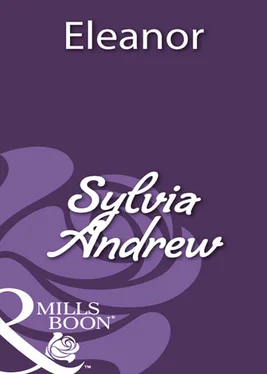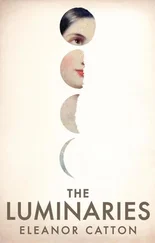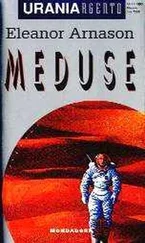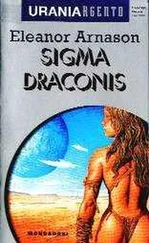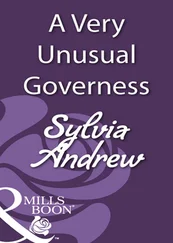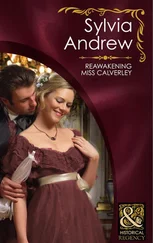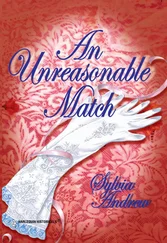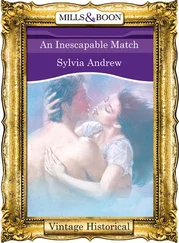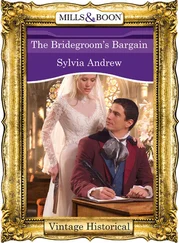‘Indeed, what else can anyone think, Eleanor?’ said her aunt sternly.
‘I…I’m not sure…He left you entirely without resources?’
‘He must have had some vestige of feeling. He paid for our passage to England, he arranged for someone to meet us when we landed and take us to our Vereker cousins in Berkeley Square. They have been very good to us. But we have not spoken to Jonas since we arrived in England. Indeed, we have avoided meeting each other since we came to London, and, though I understand he was a frequent visitor at Berkeley Square before Marianne and I came from America, he has not been there since.’ Mrs Anstey blinked down at her hands. ‘I…I still find it difficult to believe…’
She stood up. ‘I’m afraid you will have to excuse me. I must go and fetch Marianne from her lesson; she will wonder where I am.’ She hesitated and then said timidly, ‘Miss Southeran, I agreed to talk to you today because Lady Walcot has been so very good to Marianne and me. I do not know what I would have done without her. Thanks to the help from my cousins and your aunt’s kindness in sponsoring Marianne in London, I now have hope that one of my daughters at least will make the marriage she deserves. Lord Morrissey has been so very attentive. But any scandal…I know I can be sure of your discretion.’
‘Of course,’ said poor Eleanor, pulling herself together. ‘And I see now why my aunt wished me to hear your story. I am grateful to you for being so frank with me, Mrs Anstey.’
‘I saw it as my duty,’ said Mrs Anstey simply.
As they got into the carriage again Eleanor was conscious that her aunt was waiting for her to say something. But what was there to say? Mr Guthrie was a complete villain, it appeared—there was no mistaking the sincerity of Mrs Anstey’s feelings. Before talking to her Eleanor had thought, hoped even, that the woman might be a charlatan—it wouldn’t be the first time that a poor widow with a beautiful daughter had tricked her way into society. But unless Mrs Anstey was a consummate actress, which Eleanor very much doubted, she had been telling the truth. This was no scandalmonger, no vindictive gorgon—this was a woman patently sincere in her distress and shame. Mrs Anstey was completely convinced of Guthrie’s guilt, and very unhappy that it was so.
‘Well, Eleanor?’ said Lady Walcot finally.
‘Please, Aunt Hetty, could we wait till we are back in the house? I feel…I feel a little dazed at the moment. It was a shock.’
‘Of course, my child. We’ll soon be there, and you shall do just as you wish—talk to me, or spend some time in your room.’
The rest of the journey passed in silence, but this gave Eleanor a chance to recover her equilibrium and she was quite ready to talk to her aunt when they arrived. They went into the little parlour, and here Eleanor sat down, gave a great sigh and said, ‘You were right, Aunt Hetty, and I was mistaken. I am sorry to have put you to so much trouble.’
‘I am to take it that there will be no further tête-à-têtes in secluded spots with Mr Guthrie?’
‘I…I cannot imagine why I was so indiscreet.’
‘When you are on one of your crusades, Eleanor, there is no knowing what you might do! However, I think this particular crusade is finished, is it not?’
‘It is finished, Aunt Hetty.’
Something of her niece’s misery must have communicated itself to Lady Walcot, for she gave Eleanor a hug, then got up and said briskly, ‘Come, you must now try to put it all behind you. You must enjoy what is left of your time in London. Would you like to rest now, or shall we go shopping? Have you bought a present for your mother yet?’
Eleanor pulled herself firmly together and declared that she was ready to do some shopping. She and Lady Walcot decided that a note should be written to Mr Guthrie which made it clear that she did not wish to see him again. This they did, and once it had been dispatched she felt as if a burden had been lifted from her, though she still felt a secret regret. If Mr Guthrie had been the man she had thought him, she would have enjoyed his company, and fought to maintain her right to it. But as it was she need never have anything more to do with him. She sighed and then consoled herself with the thought that in a few days’ time she would be returning to Stanyards. She was looking forward to it more and more.
However, Eleanor was mistaken in thinking that she had finished with Mr Guthrie. She was to meet him again before she left London, and in very odd circumstances.
On the day before her departure she went out for one last ride. Ever since the conversation with Mrs Anstey she had taken to riding at a later hour than before, in order to avoid the embarrassment of meeting Mr Guthrie. Thus far she had been successful. It meant, of course, that she and John had to venture further in order to find less frequented areas of the park, since at the later time more people were abroad. On this occasion they had ridden almost to the western edge, and they were just about to return when they heard a faint groan coming from the bushes at the side of the path. John slid off his horse and went to investigate. He returned, saying urgently, ‘It’s Mr Guthrie, Miss Southeran. He’s lying groaning something horrible! I think ’e must ’ave fallen off ’is ’orse.’
Eleanor dismounted and followed John. Mr Guthrie was apparently in the process of regaining consciousness. He was trying to sit up, then groaning again and holding his head in his hands.
‘Fetch help, John. I’ll stay here. Do as I say; I shall be perfectly safe. Mr Guthrie needs urgent assistance, and I cannot be sure of finding the shortest way back. Go quickly—you know the way better than I do.’
John hesitated, but saw the sense of what Eleanor had said. He ran to his horse and rode off. Eleanor looked down at Mr Guthrie. He was now lying with his eyes closed. She knelt down beside him. His eyes flew open, and he said, ‘What the devil are you doing here? Where’s John?’
‘He’s gone for help.’
‘He shouldn’t have left you alone…Did you see anyone else?’
‘Here? I don’t think anyone else was here—’
‘Of course there was! Why else do you suppose I’m lying flat on my back like this?’ His tone was irritable, but that was perhaps understandable. His head was obviously hurting quite badly, and she could see a huge bruise developing over one eye.
‘I thought you might have taken a toss. People do,’ she said calmly.
‘I am not so careless. And “people” don’t usually ride into a piece of wire stretched across the path, do they? Look!’ He struggled to sit up and pointed at a length of wire lying beside the path. Eleanor got up to examine it. ‘I came off when the horse stopped dead. There was someone else here, though—I saw him standing a short way off before I fell. He looked as if he was waiting…He started coming towards me—and then the next thing I knew John was there. Confound it, you must have seen him! I wasn’t out for more than a minute.’
Eleanor looked nervously about her. ‘I’m afraid I didn’t see anyone, nor can I see anyone now. Do you think it was footpads, or highwaymen?’ Her voice had risen slightly.
‘Oh, for God’s sake, don’t start getting hysterical! I’m perfectly capable of defending us both, if necessary.’ With some difficulty Mr Guthrie drew a pistol out of the capacious pocket of his riding coat.
Eleanor said tartly, ‘I have no intention of indulging in hysterics. And if you will permit me to say so, that pistol wasn’t of very great help a moment ago—nor is it reassuring to watch you handle it now!’
‘Don’t talk rubbish. I was off my guard. And you are perfectly safe from it. What is more to the point—have you seen Captain?’
Читать дальше
